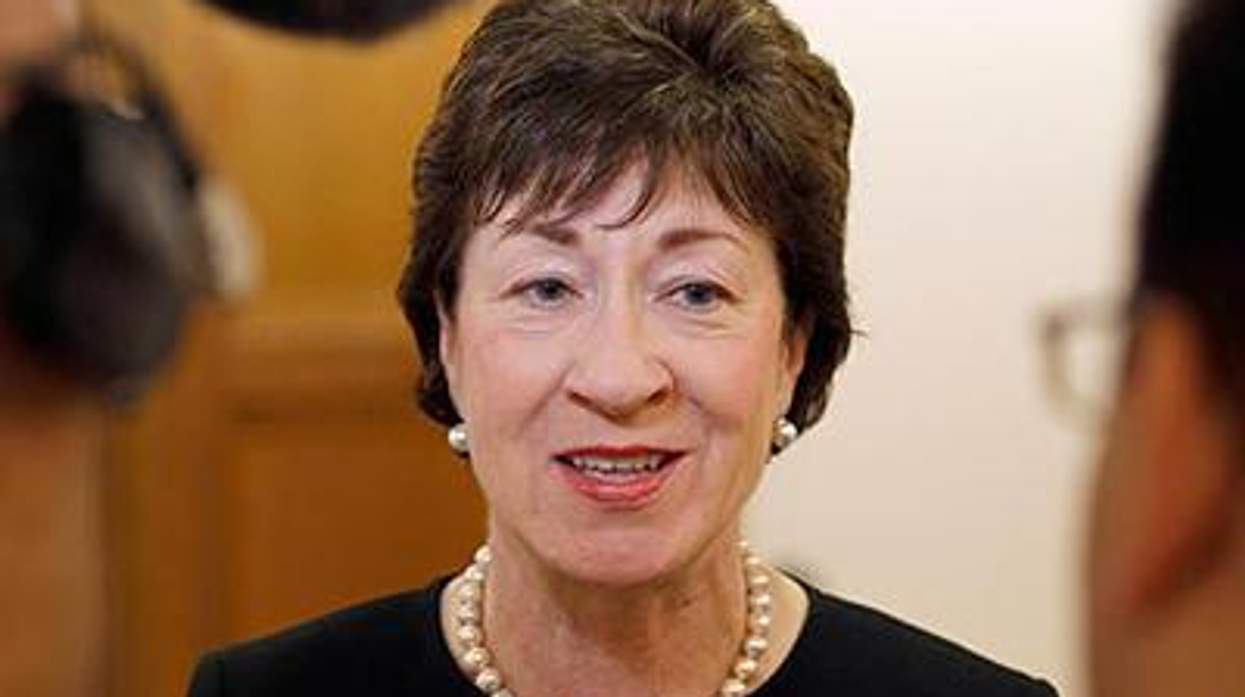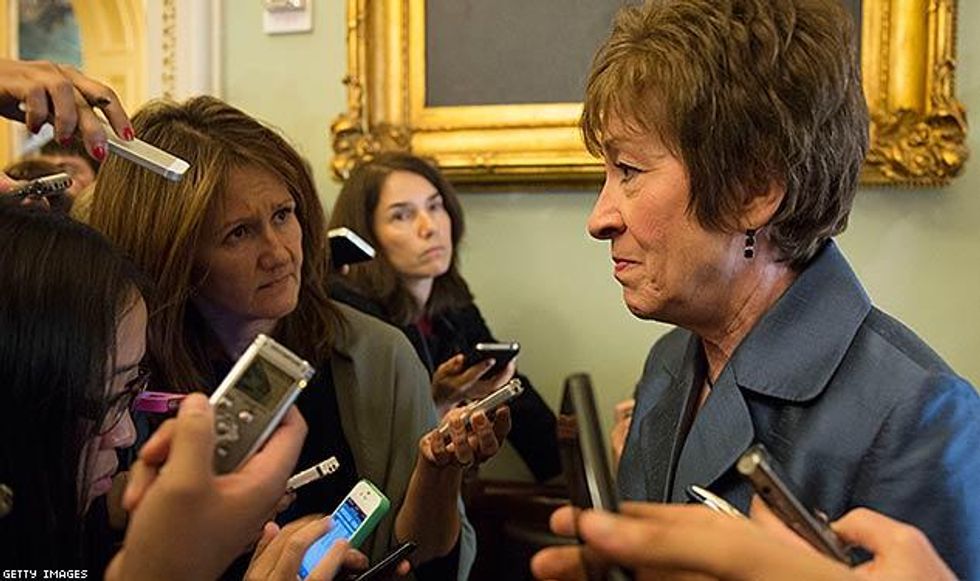
Susan Collins won reelection in Maine on Tuesday, according to CNN, and that makes her the first Republican senator to be reelected while supporting marriage equality.
A small number of
Republicans have said they back marriage equality -- Mark Kirk of Illinois, Rob Portman of Ohio, and Lisa Murkowski of Alaska -- but none had yet faced reelection.
Collins has a long record of supporting LGBT Americans on issues they care about, so much so that the Human Rights Campaign took the unusual step of
endorsing her over a Democratic challenger in the race.
Collins provided one of the GOP votes needed to repeal "don't ask, don't tell." She also
voted for the Employment Non-Discrimination Act when it passed the Senate for the first time ever, even speaking out on the floor in favor of it, though the bill later stalled in the House. Collins was for a long time
enigmatic about her support for same-sex marriage, saying only that it was a state issue, and her state repealed a ban.
But Collins eventually clarified her position and
reaffirmed it during an October debate with Democratic challenger, Shenna Bellows, who was the leader of "Mainers United for Marriage" coalition that campaigned for a ballot measure that returned marriage equality to Maine in 2012.
In the only other potential tests for whether Republicans can survive reelection after supporting marriage equality, the three members of the House that support it easily won their races. None even had a Democratic challenger.
Ileana Ros-Lehtinen of Florida is perhaps the most prominent of the group because she
led the way and became the first in her party to publicly support marriage equality back in July 2012, even co-sponsoring a bill to repeal the Defense of Marriage Act. After announcing her position, she won reelection.
Ros-Lehtinen was followed that year in December by Richard Hanna of New York, who had already won reelection. Charles Bass of New York was actually
the third House Republican to follow suit but he did so as a lame duck, only after losing a reelection bid in 2012.
Republican Charlie Dent of Pennsylvania, who is also unchallenged,
made headlines this year when he became the third sitting GOP member to back marriage equality, arguing his party had overemphasized marriage equality as an issue, telling
The Washington Post that "Life is too short to have the force of government stand in the way of two adults whose pursuit of happiness includes marriage."





































































Charlie Kirk DID say stoning gay people was the 'perfect law' — and these other heinous quotes